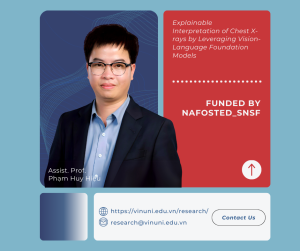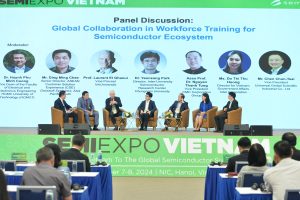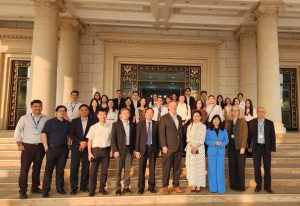Franconomics 2024: Vingroup’s Comprehensive Strategy for Green Transition
As the global green transition accelerates, Vingroup is taking bold action to position itself as a leader in sustainable development. At Franconomics 2024, Mr. David Falcon Adame, ESG Director outlined Vingroup’s ambitious green initiatives across multiple sectors, from real estate to electric vehicles, all aimed at building a cleaner, greener future.
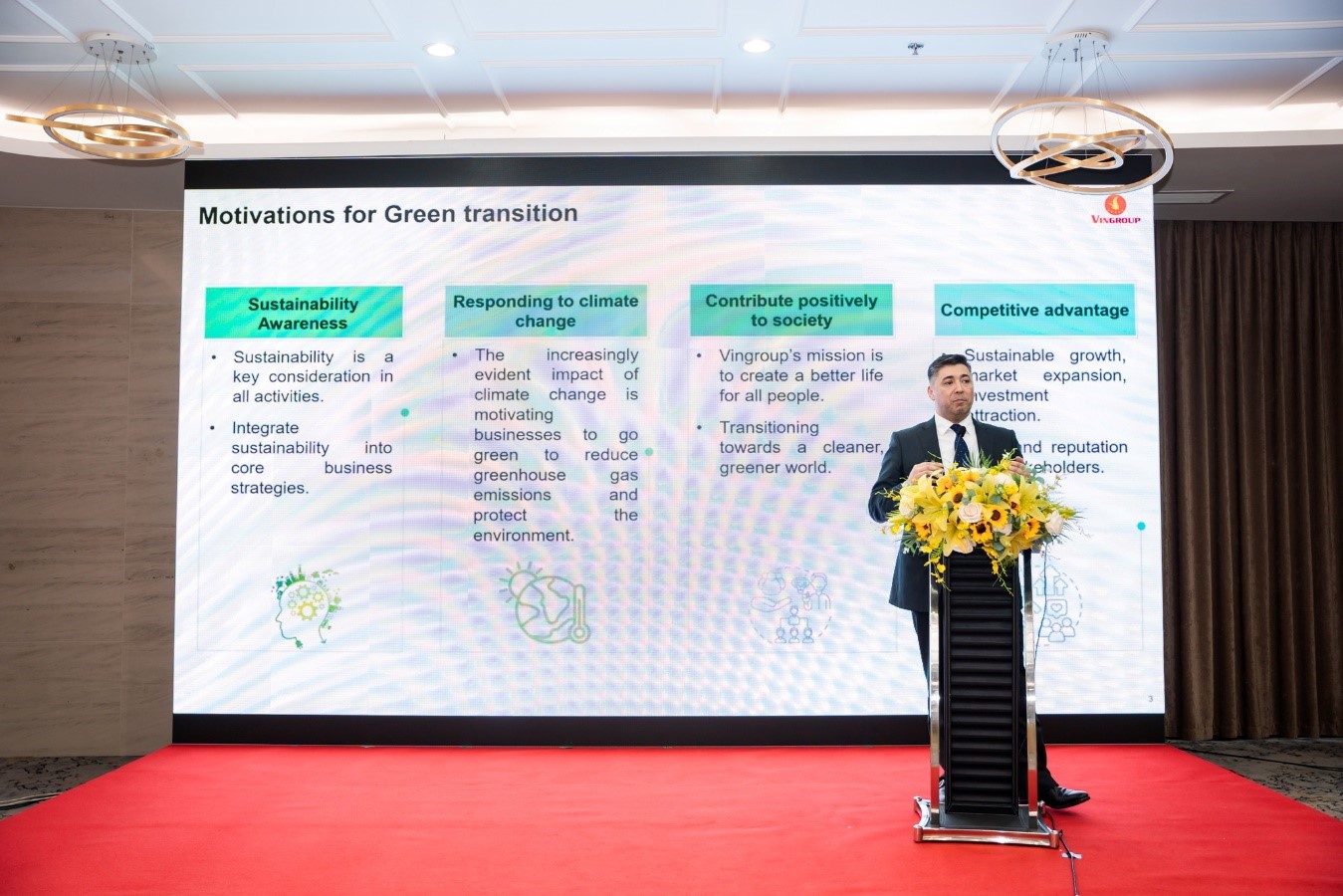
Mr. David Falcon Adame, the ESG Director of VinFast and VinGroup
3A Strong Commitment to Sustainability
At the heart of Vingroup’s strategy is a belief that sustainable practices are essential for long-term success. The company has integrated sustainability into its core operations, recognizing the need for businesses to take on greater environmental responsibility in the fight against climate change. With a vision of “Creating a Green Future,” Vingroup is committed to achieving net-zero emissions by 2050, aligning with global climate goals. The ESG Director emphasized that green transformation is not just about environmental responsibility but also offers a competitive advantage: “For sustainable growth, expanding markets, and attracting investment, green transformation is not just an option, it’s a necessity.”
Pioneering Six Key Areas
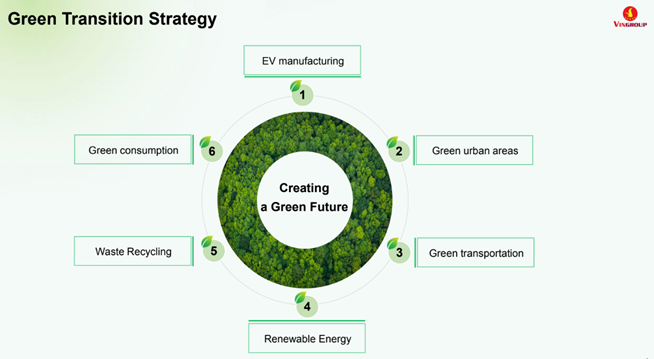
Vingroup’s green transition strategy focuses on six key areas:
- Electric Vehicles: In 2022, VinFast, Vingroup’s EV subsidiary, made a landmark shift by halting the production of internal combustion engine vehicles to focus solely on zero-emission models. By mid-2024, VinFast had delivered over 62,000 electric cars and 253,000 electric motorcycles, significantly contributing to Vietnam’s green transportation efforts.
- Green Urban Areas: Vingroup’s real estate arm, Vinhomes, is developing eco-friendly urban areas that incorporate renewable energy and low-emission materials. These developments integrate public electric transport, such as at Vinhomes Ocean Park, which features solar power and electric buses. The Technopark Tower, a LEED Platinum-certified building, serves as a model for energy-efficient urban development.
- Green Transportation: Vingroup’s VinBus service operates over 280 electric buses in Hanoi, Ho Chi Minh City, and Phu Quoc, helping reduce over 31,000 tons of CO2 emissions. Additionally, the company’s electric ride-hailing service, GSM, has expanded EV usage to 55 provinces, setting new standards for green public transport in Vietnam.
- Renewable Energy: Solar power installations are in place at several Vingroup properties, including Vinpearl resorts and Vincom shopping malls. The group plans to further expand the use of renewable energy across all of its operations, including in healthcare and education facilities.
- Waste Recycling: In line with the circular economy model, Vingroup is investing in EV battery recycling. Partnerships with Japan’s Marubeni and North America’s Li-Cycle are helping to ensure lithium-ion batteries are reused and recycled, demonstrating that even cutting-edge technology can be environmentally sustainable.
- Green Consumption: Vingroup is also promoting green consumption by reducing plastic use across its subsidiaries. For example, Vinpearl resorts have switched to biodegradable products, and Vinmec hospitals have minimized plastic use in their operations
Overcoming Challenges and Seizing Opportunities in the Green Transition
While the green transition brings challenges, particularly in transforming supply chains to be more sustainable, Vingroup views it as a major opportunity. By leading green initiatives, the company is attracting investment, fostering innovation, and enhancing its brand reputation both in Vietnam and globally. With a clear strategy and proven results, Vingroup is solidifying its position as a pioneer in Vietnam’s green transition while contributing to global sustainability efforts. As the company expands its green initiatives, it remains committed to making a lasting, positive impact on both the environment and society.

